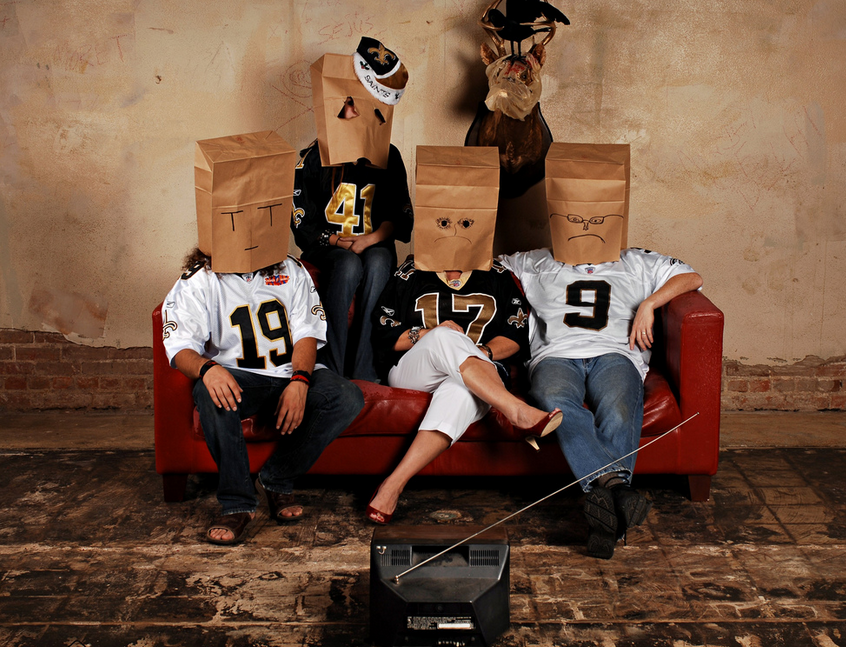NFL Threatens To Put Games On Cable If Blackout Rules Are Eliminated
In her explanation of why it was time to investigate the need for blackouts, then-acting FCC Chair Mignon Clyburn said that “Changes in the marketplace have raised questions about whether these rules are still in the public interest, particularly at a time when high ticket prices and the economy make it difficult for many sports fans to attend games.”
But in a letter [PDF] sent earlier this the FCC, the NFL’s lawyers recount a recent meeting between league reps and a legal advisor to FCC Chair Tom Wheeler.
The reps explained the NFL’s blackout rule “serves to balance the League’s two objectives of maximizing the in-stadium experience and engaging our fans through various media platforms.”
In 2012, the NFL revised the rule to lower the bar for what is considered a “sellout” to mean that only 85% of seats need to be sold. This allowed big-market teams to expand seating in their stadium without having to worry about a blackout and gave smaller-market teams some breathing room before having to flip the blackout switch.
“[T]he number of blackouts has dropped dramatically and attendance and viewership have increased over the past few decades,” reads the letter, “the blackout rule has been a critical contributing factor to that success.”
The NFL reps also argued that the blackout rule “benefits the fans, because… the policy helps to keep NFL games on free broadcast television.”
And in case the FCC didn’t get the not-at-all-subtle subtext of that statement, the letter explains that “the current system clearly serves the public interest by making professional football games available to the estimated 60 million Americans who rely on free TV for their access to broadcast programming… if the current system were changed and NFL gams were to move to pay-TV, fans who wanted to watch their home team would have to pay a $60-$80 fee per month… That result would represent a substantial loss of consumer welfare.”
Yup, that was the NFL effectively telling the FCC that if it does away with the sports blackout rule, it will take its broadcasts over to cable.
There is much debate as to whether that would be a sound idea for the league. NFL games are often among the highest rated broadcasts of any week. Meanwhile, cable ratings for Thursday Night are generally poor by comparison and the success of Monday Night Football on ESPN seems to relate directly to the interest in the two teams playing each week.
Additionally, ratings would likely be split as each game would likely be aired by regional sports networks from each of the two markets involved. For example, if the Patriots play the Eagles in Philadelphia on a Sunday afternoon, CBS’s national team would carry the game in those two markets, along with spreading it out to other markets that may be interested. CBS is also selling ads, not just against the Pats/Eagles match-up but against all of the NFL games it airs at the same time.
If you move that to cable and follow the model that’s been set up by other sports leagues, things would be much different. Suddenly, it’s not one pair of national CBS broadcasters calling a game that airs in various markets. Instead, it’s a Philadelphia regional sports network airing their broadcast to the local market and a Boston regional sports net doing the same for local Pats fans. These are broadcasts that would not be available to people without cable packages and may not even be available from all cable providers in each market.
(Once again, I point to the current nonsense in Houston and Los Angeles, where most of the market is unable to watch baseball because greedy regional sports nets refuse to make deals with other carriers. The NFL doesn’t have the luxury of 162 game seasons to wait out such disputes.)
Even if you combined the ratings for the two networks, they would likely be smaller than the single rating for the same game aired on CBS. And neither sports net will be able to generate the ad revenue that a national over-the-air network can.
The ratings for Thursday Night Football have been so bad that the league had to partner with CBS to simulcast most Thursday games this season, just to try to build an audience. If the league can’t make a go of the country’s most popular televised sport during a prime-time broadcast on a national cable channel available to most pay-TV subscribers, then this threat of a wholesale shift to pay-TV seems like a bluff.
Given that the NFL is riding high on solid attendance, and enough fans are coming out every Sunday regardless of how poorly their team is doing, why does the NFL care so much about this 39-year-old blackout rule that only affects enough games to count on your hands?
It may have something to do with rumors that the league is looking to expand the number of games it airs outside of the traditional Sunday afternoon. Perhaps the team is worried that the threat of blackouts is the only way to get butts in seats if it airs games that compete with high school games on Friday or college games on Saturday?
And of course there is always that growing threat of the home theater, with a TV larger than a fan-a-vision and a sound system louder than the stadium PA. Any fan can trick out their basement for less than it would cost to take the family to the game.
Want more consumer news? Visit our parent organization, Consumer Reports, for the latest on scams, recalls, and other consumer issues.


